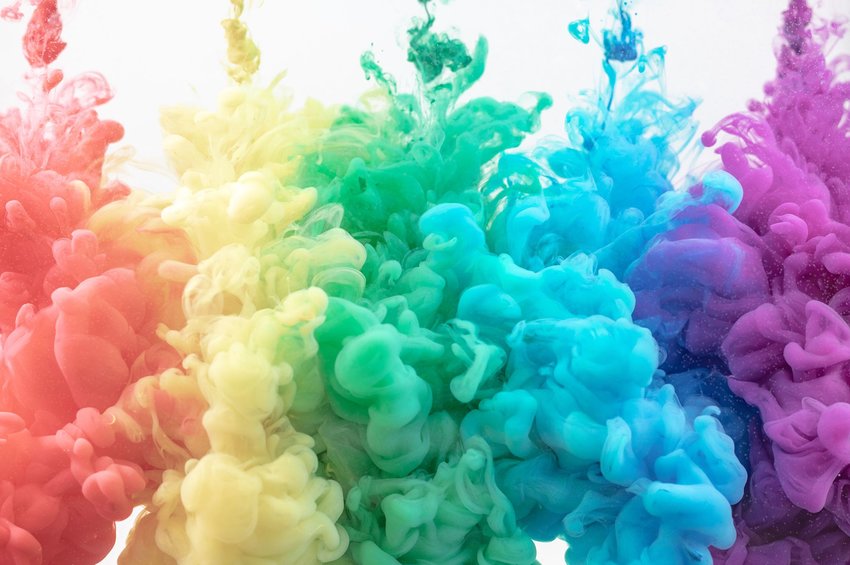Looking to add a little color to your next conversation? Many hues of the rainbow have worked their way into common idioms and sayings. Read on to discover the veritable ROY G BIV of fun ways to paint with all the colors of the English language.
Green with Envy
As with so many idioms, William Shakespeare is responsible for this one. The phrase, in which one is overcome with jealousy, originates in Othello. In the tragedy, envy is notably the titular character's undoing. As his friend and underminer Iago warns: “Oh, beware, my lord, of jealousy! It is the green-eyed monster which doth mock the meat it feeds on.”
Out of the Blue
If something happens unexpectedly or suddenly, you may exclaim it happened out of the blue. This is a shorter form of the expression “a bolt out of the blue,” which has the same meaning. It’s derived from the idea of a bolt of lightning appearing on an otherwise clear blue sky day — both unexpected and sudden.
Born in (or to) the Purple
Purple is a color often associated with royalty, so to be born into it means you are a royal by blood. It’s not an expression excessively used by commoners, although some have exclaimed (of Prince George, for instance) “What an adorable baby born to the purple!”
Caught Red-Handed
A milder version of this phrase: getting caught with your hand in the cookie jar. The earliest mentions date back to 1432, and likely referred to people with blood on their hands from murder or poaching. Just a bit more gruesome than nabbing a cookie before dinnertime.
Purple Prose
Literary critics will slap books with a purple prose label when they’re laden with overly flowery or ornamental descriptive writing. The historical definition is far less biting. It comes from the Roman “pannus purpureus,” meaning "purple patch," which was used to describe writing that was notably witty or elaborate in an otherwise perfunctory document.
Pot Calling the Kettle Black
This cheeky expression refers to the hypocrisy of someone who criticizes a negative trait they themselves possess, as in, “She said I’m two-faced? Talk about the pot calling the kettle black.” The origin story is a little fuzzy, but seems to come from the 1600s when both pots and kettles would have been made from black cast iron.
White Lie
White lies are mistruths and fibs that aren’t a particularly big deal, at least on the surface. For example, “I thought her new haircut was terrible, but I knew to tell her a white lie and say I loved it.” While an early citation of the phrase exists all the way back in the 1300s, the more common origin points to the 1740s, when the color white was perceived as pure and good — a lie out of kindness.
Shades of Gray
This expression may be now associated with a certain raunchy book and film series, but it comes as a counterpoint to the expression “in black and white,” where judgments are crystal clear. "Shades of gray," in contrast, implies a murky situation or state of ambiguous uncertainty. The expression “gray area” means the exact same thing.
Photo credit: Paweł Czerwiński/ Unsplash

